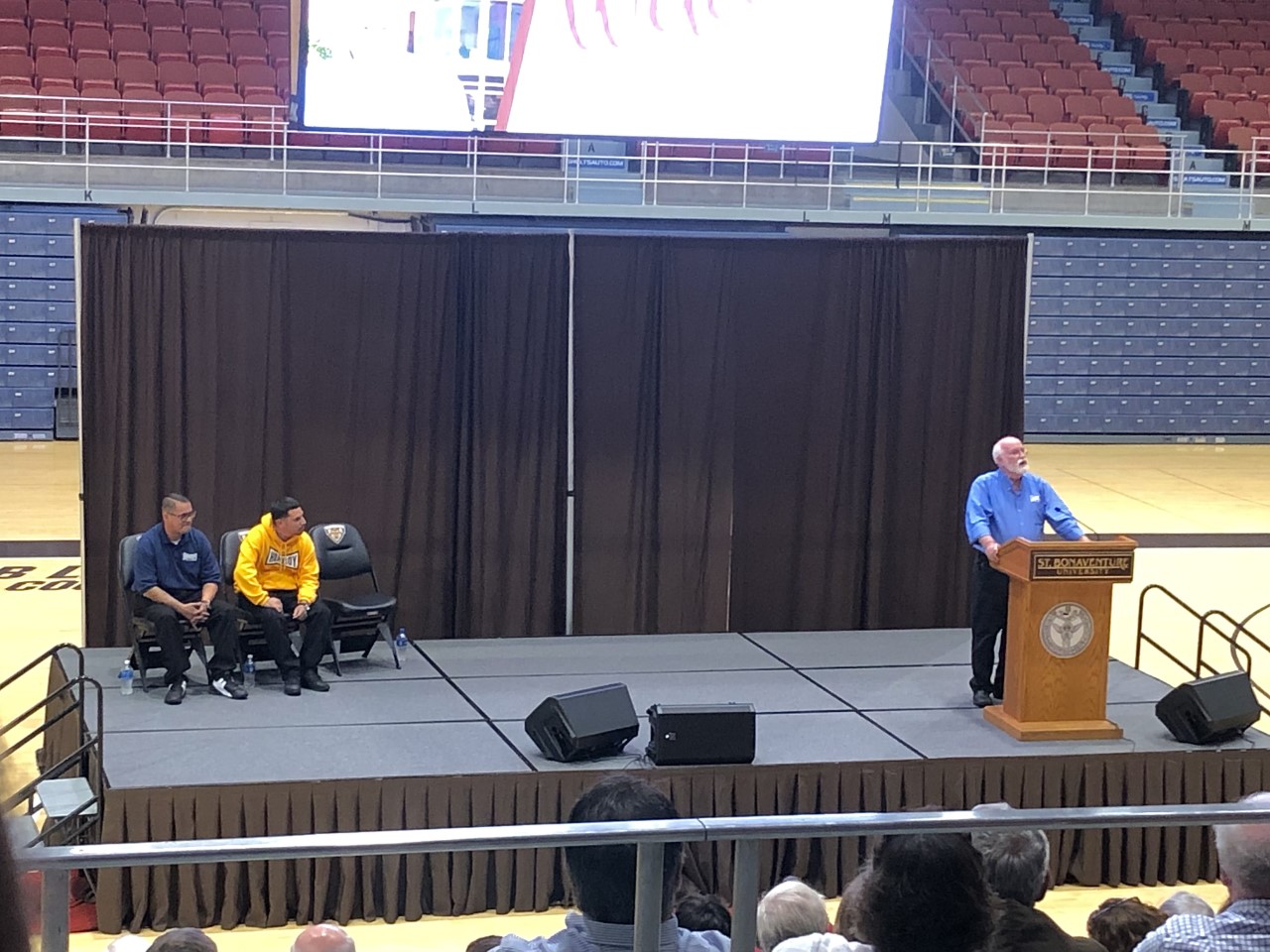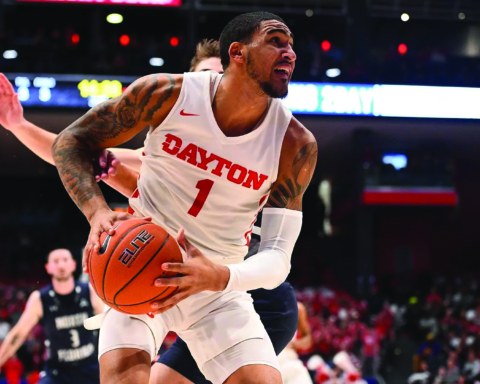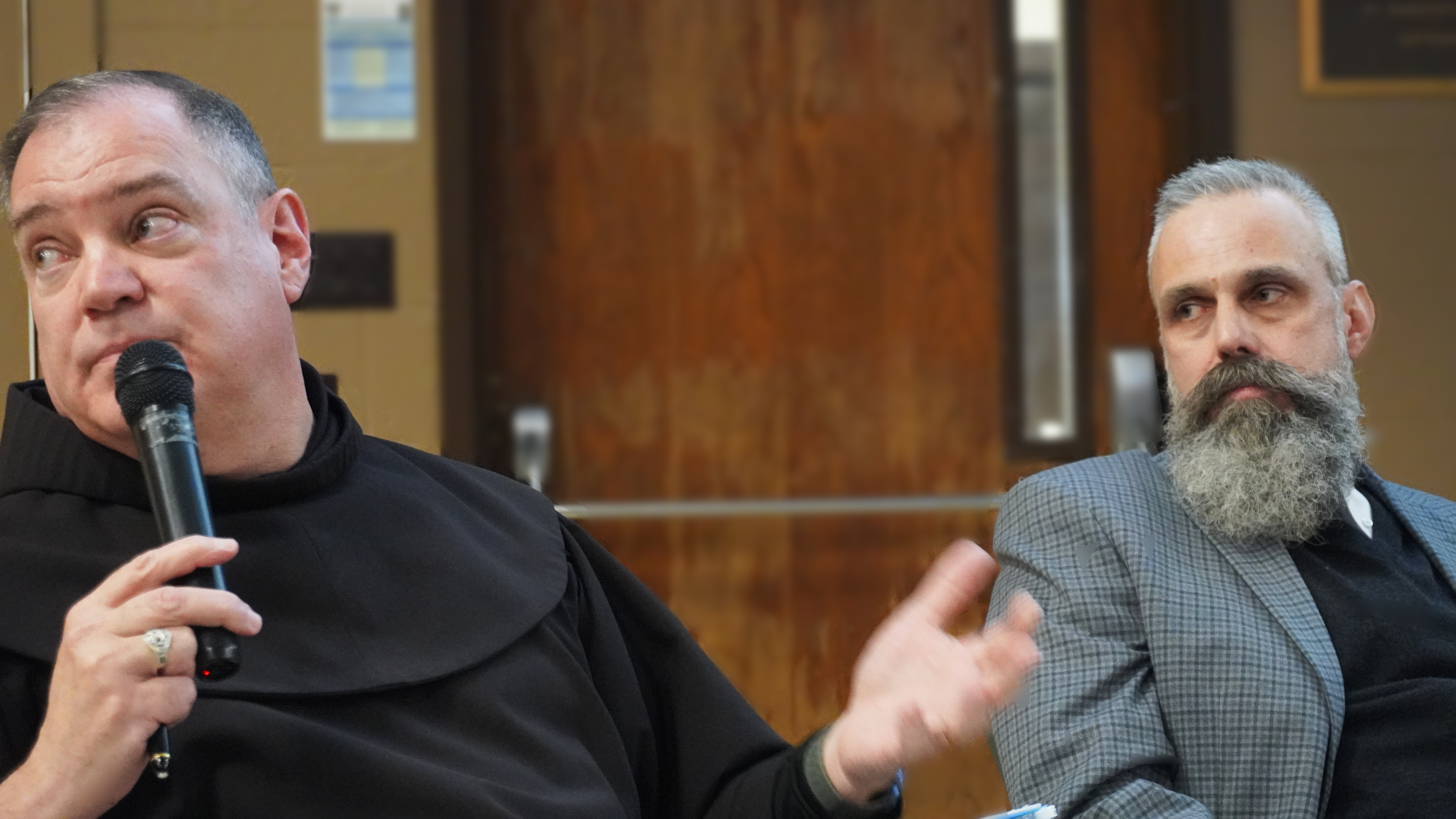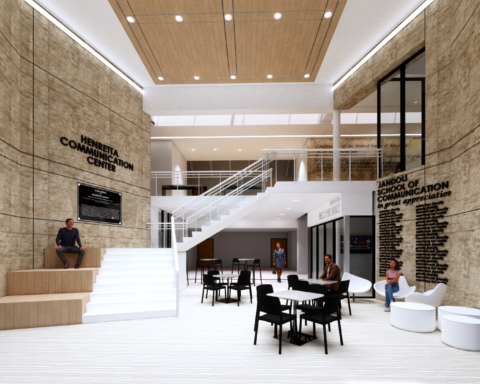PICTURE: Tucker Reilly / The Bona Venture
BY TUCKER REILLY, ADVISORY EDITOR
Fr. Greg Boyle, the founder and director of Homeboy Industries, spoke with students and faculty this week in a series of presentations on Tuesday and Wednesday. With talks focusing on leadership, corporate responsibility and kinship, Boyle spent time illustrating a vision of service to the university community.
Boyle originally conceived of Homeboy Industries in the late 1980s, when he was serving as pastor of the Dolores Mission parish in East Los Angeles. Today, it is the largest gang intervention and rehabilitation program in the United States, offering services such as job training, legal assistance, tattoo removal and counseling.
Alice Miller Nation, director of the university’s Franciscan Center for Social Concern, worked with several departments and organizations across campus to bring Boyle to campus.
“It was actually a project between BonaResponds, the school of business, the FCSC, Mt. Irenaeus, Student Affairs and University Ministries. So many moving pieces were working together,” said Nation. “Jim Mahar [associate professor of finance and coordinator for BonaResponds] had originally brought the possibility up to me and I was thrilled. They [Homeboy Industries] get so many requests every day from all over the world and it took so much hard work to bring them here.”
The first two events took place on Tuesday, with a faculty and staff lunch meeting called “Rising Up: How to support those who are overlooked and underestimated by society.” This was followed by “What is the Role of Business in Society: How can corporations offer jobs and hope” at 4 p.m., intended for students in the school of business. Speaking alongside Boyle were two “homies,” Isaac and David. As former gang members who had become involved with Homeboy Industries, both told their own stories of hardship and redemption.
The other two events took place on Wednesday. First, student leaders across campus were invited to “Embracing Compassionate Leadership,” a lunch meeting held in the McGinley-Carney Center for Franciscan Ministry. Then at 7 p.m. on the Reilly Center court, Boyle spoke at an event open to the entire campus community called “Living a Life of Tenderness, Compassion and Kinship for the Other.” Each of Boyle’s speeches were filled with anecdotes from his over 30 years of work, illustrating the human elements of service.
The presentation on Wednesday night opened with speeches from Isaac and David. In a nearly-full Reilly Center with many local attendees, laughter and tears were heard in nearly equal measure.
Throughout this final talk, Boyle focused heavily on the idea of an endlessly redemptive God, who people of service should strive to emulate. He described the “affectionate awe” with which he believes God views the world.
“The strength of a community may reside in our own ability to hold acatamiento, affectionate awe, toward our fellow members, instead of judgment,” said Boyle.
Still, Boyle cautioned, one cannot serve their fellow human beings while focusing on themselves.
“If you go to the margins to make a difference, it’s about you and it can’t be about you,” said Boyle. “If you go to have the people on the margins make a difference inside you, that’s right.”
Boyle closed his speech with a call to action from the Bonaventure community.
“How can we imagine a circle of compassion then imagine people outside of it? How is that possible? Don’t think for a moment that Bonaventure is a place you go to – it’s a place you go out from,” he said. “You go stand on the margins – with the powerless, the voiceless, the unheard. No kinship, no peace. No kinship, no justice. No kinship, no equality.”
Nation, who attended all four of Boyle’s events on campus, explained how Boyle’s message linked to the university’s own goals in service.
“It was incredible,” said Nation. “We always talk about Bonaventure being an outward community and Fr. Greg hit on that in a really beautiful and moving way. These overwhelming feelings of faith, compassion and being a part of something bigger than yourself, that’s what we need right now. Especially coming out of the pandemic, where – and I use my experience with the university warming house as an example – we’ve seen so many new issues and solutions to those issues. We have to be more than just ourselves, we have to be that outward community.”
reillyt19@bonaventure.edu








